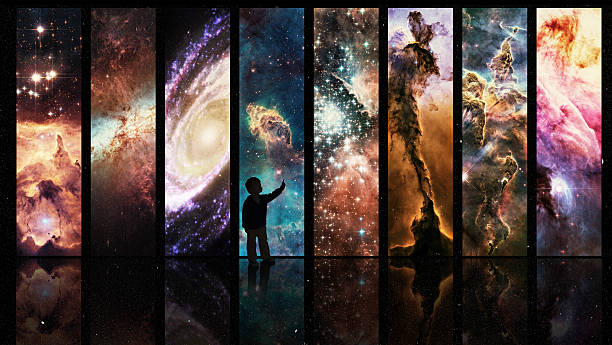THE SPEED OF UNIVERSE
THE SPEED OF UNIVERSE
The important part is that there are currently visible galaxies in our sky that will eventually vanish as they travel away from us faster than their light can keep up with.This process is best visualised by visualising space-time as a stretchy fabric that overlays the universe; if it were fairly stretched on all sides, the most distant points would appear to stand in the center, while the thing closest to you would appear to move away at a slower rate.It's heavy science, but it essentially proves that distant galaxies are travelling away from us at a faster speed than the speed of light, with predictions claiming that the distance between all objects in the universe will have doubled as a result in around 10 billion years.
How can this even happen?
Well, even though they appear to be, it isn't technically the galaxies that are reaching their speed. Stay with us... Isn't it actually only the space between the galaxies that's stretching faster than light? This phenomenon is often explained by the thought that the universe is a large piece. The raisins become more and more distant from each other. But the raisins themselves aren't really changing at all. Throw into the equation that the speed of light only truly applies to " LOCAL PHYSICAL" and "ir speed. Stay with us... Isn't it actually only the space between the galaxies that's stretching faster than light? This phenomenon is often explained by the thought that the universe is a large piece. The raisins become more and more distant from each other. But the raisins themselves aren't really changing at all. Throw into the equation that the speed of light only truly applies to "LOCAL PHYSICAL" and "PHYSICAL" processes that occur relativity close to us, and the situation gets stranger still. At the far ends of the universe, it's through that our uppermost speed limits could actually be broken, and that's basically what's happening with expansion. So, while it's true that we'll never see a local space shift flying faster than light, far off stretches of space can hit those speeds Interestingly, as with many things in science, the initial confusion about universal expansion was resolved. Actually, it birthed whole new avenues of study as well. When the acceleration of the universe was first proposed, it seemingly defied logic. But the revelation has since led scientists and theorists to the idea of dark energy
We know and understand that dark energy makes up 68% of our known universe. This is because that's how much energy there needs to be in order for our universe to expand as fast as it is. We also know that "DARK ENERGY", a similarly mysterious substance, makes up 27% of the universe. Which leaves everything else, all the particles and matter in the visible universe, according to only about 5% of all the dark energy and matter known to Einstein. but it's effectively because of them that it's the speed of light. That, once thought to be unbreakable is actually being broken by space itself. The expansion of the universe also points to a potential pretty lonely future. Should the universe continue growing at a faster and faster rate, at some stage, whole galaxies will eventually disappear from our skies. True, they wouldn't be gone, but we'd never be able to see them again because they'd passed the point where the light they emit would ever reach Earth.In this way, over billions of years, the universe could effectively become invisible to us, a blank expanse with far fewer stars and galaxies to contemplate. All of this means that, due to the expansion of the universe and the relative limits of light...
THANK YOU





Comments
Post a Comment